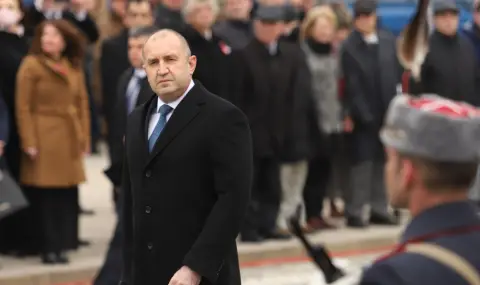Comment by Ivaylo Noyzi Tsvetkov:
You've probably heard the idiom "preaching to the choir" (to preach to your own church choir). If not, here it is: it arose somewhere in the middle of the 20th century and is not difficult to guess. It is about presenting an argument or thesis to those who will agree anyway (and like you a priori), and not about expanding the congregation, possibly preaching to those uninitiated by your denomination, i.e. setting yourself the goal of expanding your "ecclesia". Even simpler, not to convince the already convinced, but to try to attract much wider layers of the unconvinced.
This phrase has long been at the very center of the right-wing liberal-democratic cosmogony in Bulgaria. And now, when they are again gathering their "ecclesia" in order to think about a possible successful Euro-Atlantic presidential candidate, it seems appropriate to me again.
So that someone like Radev doesn't come
Pre-elections are a very good and democratic thing, but it seems to me that a conceptual turn is needed here – not too sharp, so that the centrifugal force doesn't throw out a few of the choristers. But still, one after which one can feel that there is some kind of upgrade.
A little possible context: next year there will certainly be a relatively strong pro-Eurasian figure (after Rumen Radev, who will support her, obviously or not). Ergo, the pro-Western forces (apart from reducing the use of the word "ergo") have only one task: for their candidate to be so successful at least in the nine or eight that he will at least go to a runoff.
However, I am afraid that a strictly Sofia-profile consensus figure is being sought again, i.e. the already convinced will again fail to convince. Part of the DB, for example, still oscillates between relatively political and relatively cultural, without having learned the sad lessons from previous similar candidacies (of otherwise wonderful personalities such as the late Nedelcho Beronov, Traycho Traykov or Lozan Panov). I suspect that the democratic "seat" will again rummage through "its", as if without understanding two simple things.
There is a risk of repeating old mistakes
First, this is the only pure majoritarian election in two rounds that we are contemporaries of, which means a good chance for the current opposition to at least get to the presidential power, and then think about further. Second, I can bet that the candidacy will either be strictly political, or something like an academic-cultural profile. Therefore, there is a risk of repeating old mistakes, without taking into account the zeitgeist, i.e. the spirit of the current time.
Here I hear a throaty sardonic laugh from somewhere – While we are talking about a possible strong Euro-Atlantic candidacy, it may happen that Borisov himself will run in the elections, and then there will probably be nothing to talk about. That is, one of the super-tasks on the right is - with a stuffy nose or not - to somehow convince all the declared Euro-Atlantic forces (including the extra-parliamentary ones like "Blue Bulgaria") that the PP-DB candidate can become common and consensual, and that his spear is long enough to pierce the Eurasian dragon opposite. How will it happen, if at all? Well, carefully, like in the joke about the hedgehog.
What kind of person is he or she?
And now let's think: what does this candidate in question look like, at least in outline, so that we don't preach only to the choirboys again? According to my sixth sense (and the aforementioned spirit of the era), there is something macho about him, something entrepreneurial (preferably not in the IT industry), something sporty (without being a boxer and, God forbid, a Trumpist like the very fresh Polish President Nawrocki), something no-nonsense, i.e. reasonable and straightforward in a masculine way. He has the necessary bearing and slightly Hollywood features, but most of all he looks like a man who does some real work or runs a business, and not surfing the liberal professions, and most of all, if possible, not a lawyer from one of the dozens of universities that have sprung up all over the fatherland. He speaks relatively little, exudes a tangible masculine spirit (maybe a pinch of determination, squinting his eyes, because, after all, it is a heavy responsibility) and his worldview extends beyond judicial reform, although, as we know, it is the most important. It is also good that she knows the fourth chapter of the Constitution and does not step over her authority, but that is also desirable.
And why not be a lady, by the way, so that a few more teeth of the Eurasian can be pulled out without anesthesia, especially if a miracle happens and there is a debate? We already have dozens of examples of strong and decisive female figures not only in European politics. A lady with approximately the same qualities as the Levant above, only with the added value of the feminine principle, flair and charisma.
Of course, I don't know where such people can come from, and most of all, I don't know how they will be recognized or even promoted; I only know that next year's presidential elections are crucial for the future of the entire urban right. Which must stop being only urban.
In short, a preliminary election without nostalgia, without stumbling into an elitist profile and a cunning, at times populist (I know, I know, anathema) take advantage of the prevailing pro-Euro-Atlantic attitudes.
So that we don't have to test ourselves again whose Crimea is.
